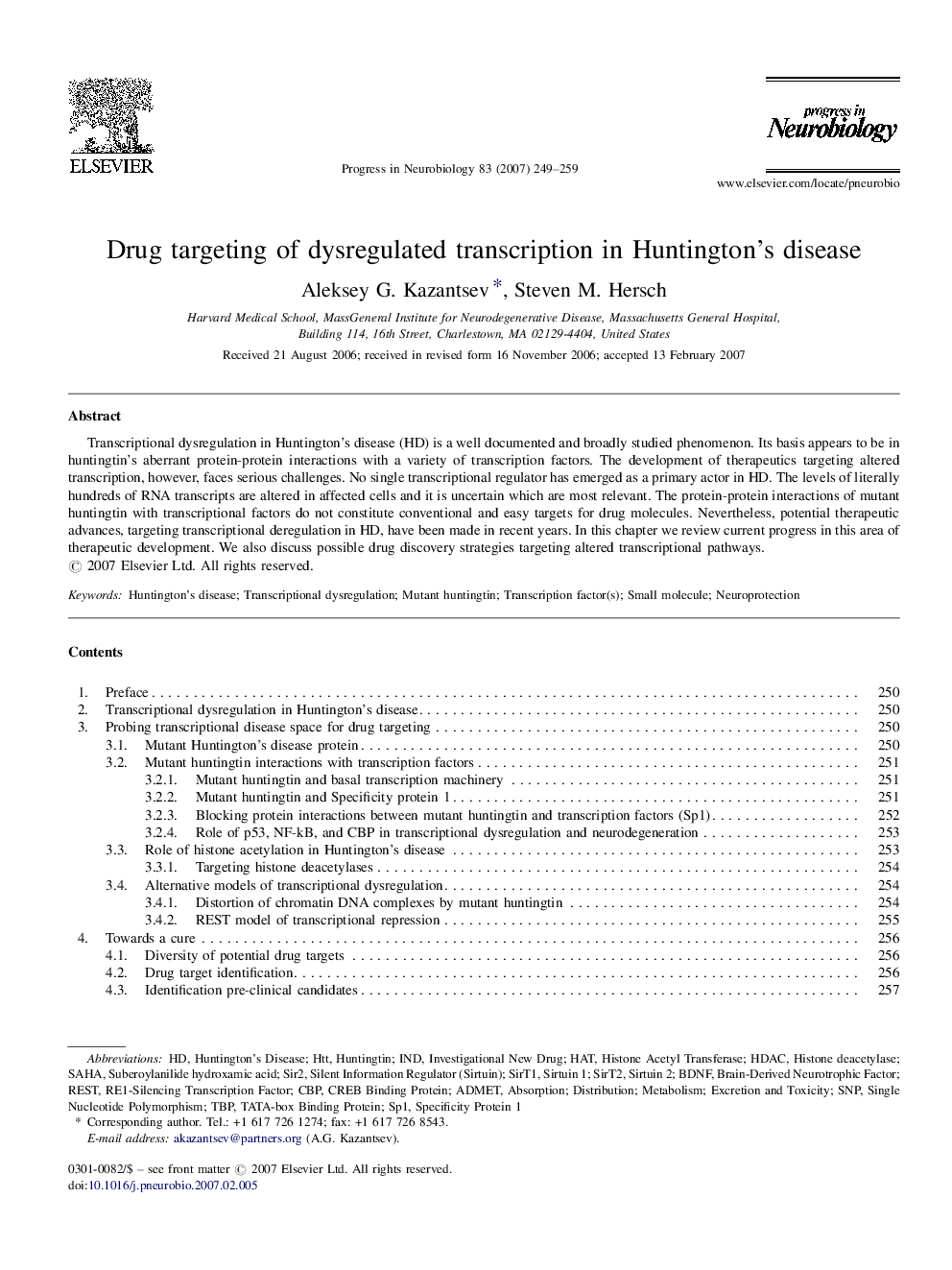| Article ID | Journal | Published Year | Pages | File Type |
|---|---|---|---|---|
| 4353878 | Progress in Neurobiology | 2007 | 11 Pages |
Transcriptional dysregulation in Huntington's disease (HD) is a well documented and broadly studied phenomenon. Its basis appears to be in huntingtin's aberrant protein-protein interactions with a variety of transcription factors. The development of therapeutics targeting altered transcription, however, faces serious challenges. No single transcriptional regulator has emerged as a primary actor in HD. The levels of literally hundreds of RNA transcripts are altered in affected cells and it is uncertain which are most relevant. The protein-protein interactions of mutant huntingtin with transcriptional factors do not constitute conventional and easy targets for drug molecules. Nevertheless, potential therapeutic advances, targeting transcriptional deregulation in HD, have been made in recent years. In this chapter we review current progress in this area of therapeutic development. We also discuss possible drug discovery strategies targeting altered transcriptional pathways.
